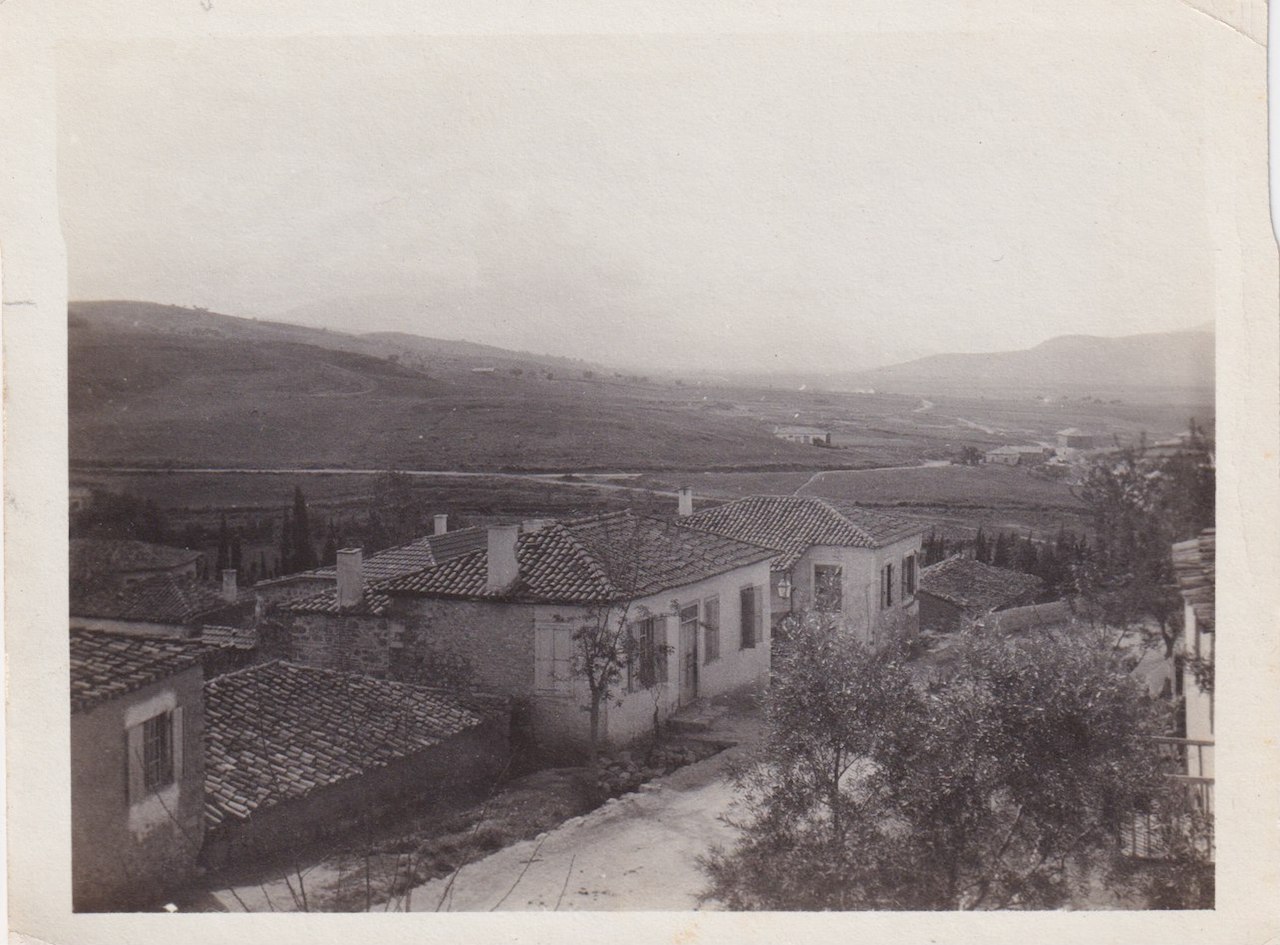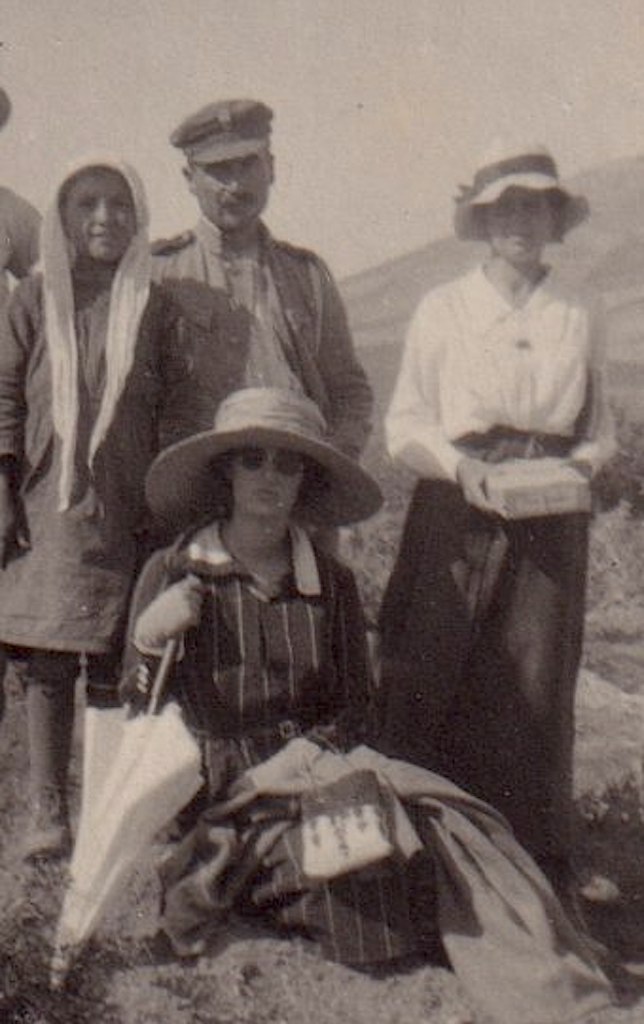By Alkistis Foti (Ure Museum volunteer)
Something very interesting about working with the archives is that I had the chance to read and catalogue letters written during the Greek Civil War (1943-1949). The war broke out between the Greek government army and the Democratic Army of Greece (DSE), the military branch of the Communist Party of Greece. These letters were really touching because they described in detail the tragedy of the war.
As you may know Percy Ure was excavating in Rhitsona, Thebes during the first quarter of the 20th century with his wife Annie. There, as I found out from the letters, they met Panagiotis Salonitis, a restaurateur with a big family with 4 daughters. The youngest of his daughters was called Vilelmini.

In letters sent from archaeologist Semni Papaspuridi–Karouzou to Percy and his wife Annie, I discovered that the Ures enjoyed going to Panagioti’s restaurant in the spring, during the excavation period, with their friends Semni and her husband Christos Karouzos, a fellow archaeologist. In her letters Semni remembered what a great time they had in Thebes tasting the delicious meals Panagiotis served them.

During the Greek Civil War period, Panagiotis Salonitis sent to Percy Ure letters describing the tragedy they were living. He wrote: ‘I lost my restaurant and I’ve been unemployed for about two years… how we survived is a miracle!’ Also, he added that they had nothing to cook and nothing to buy because everything was so expensive, and they had no money. His daughter Vilelmini decided to write to Percy too.
In her letters Vilelmini explained how unlucky she felt because she had no right to continue her studies, although she loved learning. She describes in detail how they suffered during the World War II and how they continued to suffer during the Civil war. Their home and restaurant were bombarded. They had nothing and they wanted to end their lives. Despite their struggles they still hoped that one day the fear, the pain, the hunger and the war would come to an end.
The war ended in 1949 in the defeat of the Democratic Army of Greece.
Percy read all this bad news; the only thing that he could do was try to help his dear friends. He sent packages of clothes, blankets and money. He even helped Panagiotis with the expenses of Vilelmini’s wedding and her dowry.
The Ure Museum of Greek Archaeology has a unique collection of letters to Percy Ure from a lot of different people. From these letters you can collect a lot of information about important historical events, but also about people’s lives and the language they used during this period.
References/Further Reading
Ιστορία του Ελληνικού Έθνους (16ος ΤΟΜΟΣ), Σύγχρονος Ελληνισμός από το 1941 έως το τέλος του αιώνα.
Iatrides, John O., and Nicholas X. Rizopoulos. “The International Dimension of the Greek Civil War.” World Policy Journal (2000): 87-103.
Nachmani, Amikam. “Civil War and Foreign Intervention in Greece: 1946-49.” Journal of Contemporary History (1990): 489-522.

